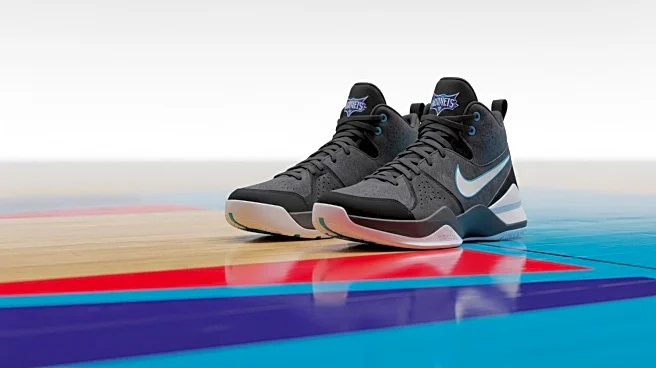What's Happening?
Head coach Charles Lee of the Charlotte Hornets has indicated that Collin Sexton may be considered for a starting position this season, depending on matchups. This announcement comes as the team evaluates its lineup options for the 2025-26 NBA season. Sexton, who played for the Utah Jazz last season, averaged 18.4 points, 4.2 assists, and 1.7 three-pointers per game over 63 contests. Lee also mentioned Kon Knueppel and Tre Mann as potential starters, highlighting the fluid nature of the team's lineup decisions. The Hornets are exploring various strategies to optimize their performance, with Sexton expected to play a significant role as a scorer off the bench.
Why It's Important?
The decision to potentially start Collin Sexton based on matchups reflects the Hornets' strategic approach to maximizing their competitive edge. Sexton's proven scoring ability and versatility make him a valuable asset, whether starting or coming off the bench. This flexibility allows the Hornets to adapt to different opponents, potentially improving their chances in the highly competitive NBA landscape. The move could also impact Sexton's career trajectory, offering him more visibility and opportunities to showcase his skills. For the Hornets, this strategy could lead to better team dynamics and performance, influencing their standings in the league.
What's Next?
As the Hornets continue to assess their lineup, the preseason games will be crucial in determining the effectiveness of different player combinations. Coach Lee's decision-making will likely evolve as he observes player performances and team chemistry. The Hornets' management and fans will be watching closely to see how these lineup changes affect the team's success. Sexton's role, whether as a starter or a key bench player, will be pivotal in shaping the team's strategy and outcomes in the upcoming season.
Beyond the Headlines
The Hornets' approach to lineup flexibility highlights broader trends in the NBA, where teams increasingly rely on data-driven strategies to optimize player performance. This shift towards matchup-based decisions reflects a deeper understanding of basketball analytics and its impact on game outcomes. It also underscores the importance of adaptability in professional sports, where teams must constantly evolve to stay competitive.









